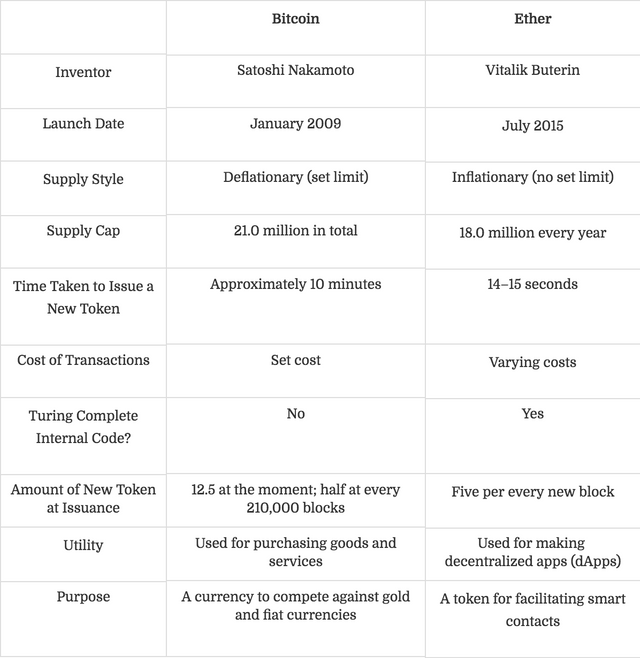In order to fully understand Ethereum, what it does and how it can potentially impact our society, it is important to learn what its core properties are and how they differ from standard approaches.
First of all, Ethereum is a decentralized system, which means it is not controlled by any single governing entity. An absolute majority of online services, businesses and enterprises are built on a centralized system of governance. This approach has been used for hundreds of years, and while history proved time and time again that it’s flawed, its implementation is still necessary when the parties don’t trust each other.
A centralized approach means single-entity control, but it also means a single point of failure, which makes apps and online-servers utilizing this system extremely vulnerable to hacker attacks and even power outages. Moreover, most social networks and other online servers require users to provide at least some degree of personal information, which is then stored on their servers. From there, it can be easily stolen by the company itself, its rogue workers or hackers.

Ethereum, being a decentralized system, is fully autonomous and is not controlled by anyone at all. It has no central point of failure, as it is being run from thousands of volunteers’ computers around the globe, which means it can never go offline. Moreover, users’ personal information stays on their own computers, while content, such as apps, videos, etc., stays in full control of its creators without having to obey by the rules imposed by hosting services such as App Store and YouTube.
Secondly, it is important to understand that even though constantly compared to each other, Ethereum and Bitcoin are two completely different projects with entirely different goals. Bitcoin is the first ever cryptocurrency and a money-transfer system, built on and supported by a distributed public ledger technology called the Blockchain.

Ethereum took the technology behind Bitcoin and substantially expanded its capabilities. It is a whole network, with its own Internet browser, coding language and payment system. Most importantly, it enables users to create decentralized applications on Ethereum’s Blockchain.
How Ethereum Is Different from Bitcoin :
Those applications can either be entirely new ideas or decentralized reworks of already existing concepts. This essentially cuts out the middleman and all the expenses associated with the involvement of a third party. For example, the only profit that comes from users ‘liking’ and ‘sharing’ their favorite musician’s posts on Facebook is generated from an advertisement placed on their page and it goes directly to Facebook. In an Ethereum version of such social network, both the artists and the audience would receive awards for positive communication and support. Similarly, In a decentralized version of Kickstarter, you won’t be getting just some artifact for your contribution to the company, you will be receiving a part of the company’s future profits. Finally, Ethereum-based applications will remove all sorts of payments to third parties for fascinating any kind of services.
Ethereum, like Bitcoin, is a distributed public blockchain network, but they differ How-Ethereum-Is-Different-from-Bitcoinsubstantially in purpose and in capability. While Bitcoin is a currency, Ethereum is a token. What Bitcoin does for money, Ethereum does for contracts.
Ethereum allows you to write a digital agreement in which every command will result in a precise action and nothing else. Up until now, you wrote your signature on a page to declare that you agreed to the terms of the contract. Ethereum significantly improves on this archaic system by making the proof of transaction digital and forever indelible.
In addition to this huge difference on a broad level, there are other factors that set Bitcoin and Ethereum apart.

With Ethereum, the block time is set as 14–15 seconds, as opposed to 10 minutes with Bitcoin. So clearly, Ethereum allows for faster transaction times.
Ethereum releases the same amount of Ether year after year, whereas the Bitcoin block rewards halve every four years.
The cost for Bitcoin transactions are standardized, whereas, with Ethereum, the costs may change according to the computational complexity, bandwidth use, and storage needs.
Ethereum’s very own Turing complete internal code allows for anything to be calculated, provided that there is computing power and time. This manner of flexibility is absent in Bitcoin.
Ethereum was crowdfunded, whereas Bitcoin was released—with most of the 21 million Bitcoins in existence being owned by early miners.
Unlike Bitcoin, Ethereum discourages centralized pool mining through its Ghost protocol.
Ethereum uses Ethash, a memory hard hashing algorithm. Bitcoin uses centralized application-specific integrated circuits (ASICs).

Hi! I am a robot. I just upvoted you! I found similar content that readers might be interested in:
https://cointelegraph.com/ethereum-for-beginners/what-is-ethereum
Downvoting a post can decrease pending rewards and make it less visible. Common reasons:
Submit